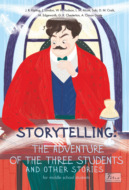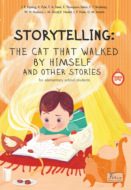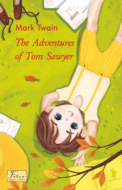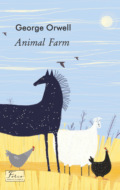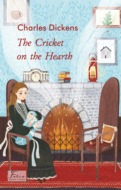Kitobni o'qish: «Storytelling. The adventure of the creeping man and other stories»
© Yu. Belochkina, compiling, 2021
© O. Huhalova-Mieshkova, graphic artist, 2021
© Folio Publishing House, brand series, 2020
The degeneration of Thomas Henry
by Jerome Kl. Jerome
THE most respectable cat I have ever known was Thomas Henry. His original name was Thomas, but it seemed absurd to call him that. The family at Hawarden would as soon think of addressing Mr. Gladstone as ‘‘Bill’’. He came to us from the Reform Club, via the butcher, and the moment I saw him I felt that, of all the clubs in London, that was the club he must have come from. Its atmosphere of solid dignity and petrified conservatism seemed to cling to him. Why he left the club I am unable, at this distance of time, to remember positively, but I am inclined to think that it came about owing to a difference with the new chef, an overbearing personage, who wanted all the fire to himself. The butcher, hearing of the quarrel, and knowing us as a catless family, suggested a way out of the impasse that was welcomed by both cat and cook. The parting between them, I believe, was purely formal; and Thomas arrived prejudiced in our favor.
My wife, the moment she saw him, suggested Henry as a more suitable name. It struck me that the combination of the two would be still more appropriate, and accordingly, in the privacy of the domestic circle, Thomas Henry he was called. When speaking of him to friends, we generally alluded to him as Thomas Henry, Esquire.
He approved of us in his quiet, undemonstrative way. He chose my own particular easy-chair for himself, and stuck to it. An ordinary cat I should have shot out, but Thomas Henry was not the cat one chivvies. Had I made it clear to him that I objected to his presence in my chair, I feel convinced he would have regarded me much as I should expect to be regarded by Queen Victoria were that gracious lady to call upon me in a friendly way, and were I to inform her that I was busy, and request her to look in again some other afternoon. He would have risen and have walked away, but he never would have spoken to me again so long as we lived under the same roof.
We had a lady staying with us at the time – she still resides with us, but she is now older, and possessed of more judgment – who was no respecter of cats. Her argument was that, seeing the tail stuck up, and came conveniently to one’s hand, that was the natural appendage by which to raise a cat. She also labored under the error that the way to feed a cat was to ram things into its head, and that its pleasure was to be taken out for a ride in a doll’s perambulator. I dreaded the first meeting of Thomas Henry with this lady. I feared lest she should give him a false impression of us as a family, and that we should suffer in his eyes.
But I might have saved myself all anxiety. There was a something about Thomas Henry that checked forwardness and damped familiarity. His attitude toward her was friendly, but firm. Hesitatingly, and with a newborn respect for cats, she put out her hand timidly toward his tail. He gently put it on the other side, and looked at her. It was not an angry look nor an offended look. It was the expression with which Solomon might have received the advances of the Queen of Sheba. It expressed condescension, combined with distance.
He was really a most gentlemanly cat. A friend of mine, who believes in the doctrine of the transmigration of souls, was convinced that he was Lord Chesterfield. He never clamored for food, as other cats do. He would sit beside me at meals, and wait till he was served. He would eat only the knuckle end of leg of mutton, and would never look at overdone beef. A visitor of ours once offered him a piece of gristle; he said nothing, but quietly left the room, and we did not see him again until our friend had departed.
But everyone has his price, and Thomas Henry’s price was roast duck. Thomas Henry’s attitude in the presence of roast duck came to me as a psychological revelation. It showed me at once the lower and more animal side of his nature. In the presence of roast duck Thomas Henry became simply and merely a cat, swayed by all the savage instincts of his race. His dignity fell from him as a cloak. He clawed for roast duck, he groveled for it. I believe he would have sold himself to the devil for roast duck.
We accordingly avoided that particular dish; it was painful to see a cat’s character so completely demoralized. Besides, his manners, when roast duck was on the table, afforded a bad example to the children.
He was a shining light among all the cats of our neighborhood. One might have set one’s watch by his movements. After dinner he invariably took half an hour’s constitutional in the square; at ten o’clock each night, precisely, he returned to the area door, and at eleven o’clock he was asleep in my easy-chair. He made no friends among the other cats. He took no pleasure in fighting, and I doubt his ever having loved, even in youth; his was too cold and self-contained a nature; female society he regarded with utter indifference.
So he lived with us a blameless existence during the whole winter. In the summer we took him down with us into the country. We thought the change of air would do him good; he was getting decidedly stout. Alas, poor Thomas Henry! The country was his ruin. What brought about the change I cannot say. Maybe the air was too bracing. He slid down the moral incline with frightful rapidity. The first night he stopped out till eleven, the second night he never came home at all, the third night he came home at six o’clock in the morning, minus half the fur on the top of his head. Of course, there was a lady in the case; indeed, judging by the riot that went on all night, I am inclined to think there must have been a dozen. He was certainly a fine cat, and they took to calling for him in the daytime. Then gentlemen cats who had been wronged took to calling also, and demanding explanations, which Thomas Henry, to do him justice, was always ready to accord.
The village boys used to loiter round all day to watch the fights; and angry housewives would be constantly charging into our kitchen to fling dead cats upon the table, and appeal to heaven and myself for justice. Our kitchen became a veritable cat’s morgue, and I had to purchase a new kitchen table. The cook said it would make her work simpler if she could keep a table entirely to herself. She said it quite confused her, having so many dead cats lying round among the joints and vegetables. She was afraid of making a mistake. Accordingly, the old table was placed under the window, and devoted to the cats; and after that she would never allow anyone to bring a cat, however dead, to her table.
“What do you want me to do with it?” I heard her asking an excited lady on one occasion; “cook it?”
“It’s my cat,” said the lady, “that’s what that is.”
“Well, I’m not making cat-pie to-day,” answered our cook. “You take it to its proper table. This is my table.”
At first “justice” was generally satisfied with half a crown, but as time went on cats rose. I had hitherto regarded cats as a cheap commodity, and I became surprised at the value attached to them. I began to think seriously of breeding cats as an industry. At the prices current in that village I could have made an income of thousands.
“Look what your beast has done,” said one irate female, to whom I had been called out in the middle of dinner.
I looked. Thomas Henry appeared to have “done” a mangy, emaciated animal that must have been far happier dead than alive. Had the poor creature been mine, I should have thanked him; but some people never know when they are well off.
“I wouldn’t ha’ taken a five-pun note for that cat,” said the lady.
“It’s a matter of opinion,” I replied; “but, personally, I think you have been unwise to refuse it. Taking the animal as it stands, I don’t feel inclined to give you more than a shilling for it. If you think you can do better by taking it elsewhere, you can do so.”
“He was more like a Christian than a cat,” said the lady.
“I’m not taking dead Christians,” I answered firmly; “and even if I were, I wouldn’t give more than a shilling for a specimen like that. You can consider him as a Christian, or you can consider him as a cat; but he’s not worth more than a shilling in either case.”
We settled eventually for eighteenpence.
The number of cats that Thomas Henry contrived to dispose of also surprised me. Quite a massacre of cats seemed to be in progress.
One evening, going into the kitchen, for I made it a practice now to visit the kitchen each evening to inspect the daily consignment of dead cats, I found, among others, a curiously marked tortoiseshell cat lying on the table.
“That cat’s worth half a sovereign,” said the owner, who was standing by, drinking beer.
I took up the animal and examined it.
“Your cat killed him yesterday,” continued the man; “it’s a burning shame.”
“My cat has killed him three times,” I replied. “He was killed on Saturday as Mrs. Hedger’s cat; on Monday he was killed for Mrs. Myers. I was not quite positive on Monday; but I had my suspicions, and I made notes. Now I recognize him. You take my advice and bury him before he breeds a fever. I don’t care how many lives a cat has got, I only pay for one.”
We gave Thomas Henry every chance to reform; but he only went from bad to worse, and added poaching and chicken stalking to his other crimes; and I grew tired of paying for his vices.
I consulted the gardener, and the gardener said he had known cats taken that way before.
“Do you know of any cure for it?” I asked.
“Well, sir,” replied the gardener, “I have heard as how a dose of brickbat and pond is a good thing in a general way.”
“We’ll try him with a dose just before bedtime,” I answered. The gardener administered it, and we had no further trouble with him.
Poor Thomas Henry! It shows to one how a reputation for respectability may lie in the mere absence of temptation. Born and bred in the atmosphere of the Reform Club, what gentleman could go wrong? I was sorry for Thomas Henry, and I have never believed in the moral influence of the country since.
A Harlem tragedy
by O. Henry
Mrs. Fink had dropped into Mrs. Cassidy’s flat one flight below.
“Ain’t it a beaut?” said Mrs. Cassidy.
She turned her face proudly for her friend Mrs. Fink to see. One eye was nearly closed, with a great, greenish-purple bruise around it. Her lip was cut and bleeding a little and there were red finger-marks on each side of her neck.
“My husband wouldn’t ever think of doing that to me,” said Mrs. Fink, concealing her envy.
“I wouldn’t have a man,” declared Mrs. Cassidy, “that didn’t beat me up at least once a week. Shows he thinks something of you. Say! but that last dose Jack gave me wasn’t no homeopathic one. I can see stars yet. But he’ll be the sweetest man in town for the rest of the week to make up for it. This eye is good for theater tickets and a silk shirt waist at the very least.”
“I should hope,” said Mrs. Fink, assuming complacency, “that Mr. Fink is too much of a gentleman ever to raise his hand against me.”
“Oh, go on, Maggie!” said Mrs. Cassidy, laughing and applying witch hazel, “you’re only jealous. Your old man is too frappéd and slow to ever give you a punch. He just sits down and practises physical culture with a newspaper when he comes home – now ain’t that the truth?”
“Mr. Fink certainly peruses of the papers when he comes home,” acknowledged Mrs. Fink, with a toss of her head; “but he certainly don’t ever make no Steve O’Donnell out of me just to amuse himself – that’s a sure thing.”
Mrs. Cassidy laughed the contented laugh of the guarded and happy matron. With the air of Cornelia exhibiting her jewels, she drew down the collar of her kimono and revealed another treasured bruise, maroon-colored, edged with olive and orange – a bruise now nearly well, but still to memory dear.
Mrs. Fink capitulated. The formal light in her eye softened to envious admiration. She and Mrs. Cassidy had been chums in the downtown paper-box factory before they had married, one year before. Now she and her man occupied the flat above Mame and her man. Therefore she could not put on airs with Mame.
“Don’t it hurt when he soaks you?” asked Mrs. Fink, curiously.
“Hurt!”– Mrs. Cassidy gave a soprano scream of delight. “Well, say – did you ever have a brick house fall on you? – well, that’s just the way it feels – just like when they’re digging you out of the ruins. Jack’s got a left that spells two matinees and a new pair of Oxfords – and his right! – well, it takes a trip to Coney and six pairs of openwork, silk lisle threads to make that good.”
“But what does he beat you for?” inquired Mrs. Fink, with wide-open eyes.
“Silly!” said Mrs. Cassidy, indulgently. “Why, because he’s full. It’s generally on Saturday nights.”
“But what cause do you give him?” persisted the seeker after knowledge.
“Why, didn’t I marry him? Jack comes in tanked up; and I’m here, ain’t I? Who else has he got a right to beat? I’d just like to catch him once beating anybody else! Sometimes it’s because supper ain’t ready; and sometimes it’s because it is. Jack ain’t particular about causes. He just lushes till he remembers he’s married, and then he makes for home and does me up. Saturday nights I just move the furniture with sharp corners out of the way, so I won’t cut my head when he gets his work in. He’s got a left swing that jars you! Sometimes I take the count in the first round; but when I feel like having a good time during the week or want some new rags I come up again for more punishment. That’s what I done last night. Jack knows I’ve been wanting a black silk waist for a month, and I didn’t think just one black eye would bring it. Tell you what, Mag, I’ll bet you the ice cream he brings it to-night.”
Mrs. Fink was thinking deeply.
“My Mart,” she said, “never hit me a lick in his life. It’s just like you said, Mame; he comes in grouchy and ain’t got a word to say. He never takes me out anywhere. He’s a chair-warmer at home for fair. He buys me things, but he looks so glum about it that I never appreciate ‘em.”
Mrs. Cassidy slipped an arm around her chum. “You poor thing!” she said. “But everybody can’t have a husband like Jack. Marriage wouldn’t be no failure if they was all like him. These discontented wives you hear about – what they need is a man to come home and kick their slats in once a week, and then make it up in kisses, and chocolate creams. That’d give ‘em some interest in life. What I want is a masterful man that slugs you when he’s jagged and hugs you when he ain’t jagged. Preserve me from the man that ain’t got the sand to do neither!”
Mrs. Fink sighed.
The hallways were suddenly filled with sound. The door flew open at the kick of Mr. Cassidy. His arms were occupied with bundles. Mame flew and hung about his neck. Her sound eye sparkled with the love light that shines in the eye of the Maori maid when she recovers consciousness in the hut of the wooer who has stunned and dragged her there.
“Hello, old girl!” shouted Mr. Cassidy. He shed his bundles and lifted her off her feet in a mighty hug. “I got tickets for Barnum amp; Bailey’s, and if you’ll bust the string of one of them bundles I guess you’ll find that silk waist – why, good evening, Mrs. Fink – I didn’t see you at first. How’s old Mart coming along?”
“He’s very well, Mr. Cassidy – thanks,” said Mrs. Fink. “I must be going along up now. Mart’ll be home for supper soon. I’ll bring you down that pattern you wanted to-morrow, Mame.”
Mrs. Fink went up to her flat and had a little cry. It was a meaningless cry, the kind of cry that only a woman knows about, a cry from no particular cause, altogether an absurd cry; the most transient and the most hopeless cry in the repertory of grief. Why had Martin never thrashed her? He was as big and strong as Jack Cassidy. Did he not care for her at all? He never quarrelled; he came home and lounged about, silent, glum, idle. He was a fairly good provider, but he ignored the spices of life.
Mrs. Fink’s ship of dreams was becalmed. Her captain ranged between plum duff and his hammock. If only he would shiver his timbers or stamp his foot on the quarter-deck now and then! And she had thought to sail so merrily, touching at ports in the Delectable Isles! But now, to vary the figure, she was ready to throw up the sponge, tired out, without a scratch to show for all those tame rounds with her sparring partner. For one moment she almost hated Mame – Mame, with her cuts and bruises, her salve of presents and kisses; her stormy voyage with her fighting, brutal, loving mate.
Mr. Fink came home at 7. He was permeated with the curse of domesticity. Beyond the portals of his cozy home he cared not to roam, to roam. He was the man who had caught the street car, the anaconda that had swallowed its prey, the tree that lay as it had fallen.
“Like the supper, Mart?” asked Mrs. Fink, who had striven over it.
“M-m-m-yep,” grunted Mr. Fink.
After supper he gathered his newspapers to read. He sat in his stocking feet.
Arise, some new Dante, and sing me the befitting corner of perdition for the man who sitteth in the house in his stockinged feet. Sisters of Patience who by reason of ties or duty have endured it in silk, yarn, cotton, lisle thread or woollen – does not the new canto belong?
The next day was Labor Day. The occupations of Mr. Cassidy and Mr. Fink ceased for one passage of the sun. Labor, triumphant, would parade and otherwise disport itself.
Mrs. Fink took Mrs. Cassidy’s pattern down early. Mame had on her new silk waist. Even her damaged eye managed to emit a holiday gleam. Jack was fruitfully penitent, and there was a hilarious scheme for the day afoot, with parks and picnics and Pilsener in it.
A rising, indignant jealousy seized Mrs. Fink as she returned to her flat above. Oh, happy Mame, with her bruises and her quick-following balm! But was Mame to have a monopoly of happiness? Surely Martin Fink was as good a man as Jack Cassidy. Was his wife to go always unbelabored and uncaressed? A sudden, brilliant, breathless idea came to Mrs. Fink. She would show Mame that there were husbands as able to use their fists and perhaps to be as tender afterward as any Jack.
The holiday promised to be a nominal one with the Finks. Mrs. Fink had the stationary washtubs in the kitchen filled with a two weeks’ wash that had been soaking overnight. Mr. Fink sat in his stockinged feet reading a newspaper. Thus Labor Day presaged to speed.
Jealousy surged high in Mrs. Fink’s heart, and higher still surged an audacious resolve. If her man would not strike her – if he would not so far prove his manhood, his prerogative and his interest in conjugal affairs, he must be prompted to his duty.
Mr. Fink lit his pipe and peacefully rubbed an ankle with a stockinged toe. He reposed in the state of matrimony like a lump of unblended suet in a pudding. This was his level Elysium – to sit at ease vicariously girdling the world in print amid the wifely splashing of suds and the agreeable smells of breakfast dishes departed and dinner ones to come. Many ideas were far from his mind; but the furthest one was the thought of beating his wife.
Mrs. Fink turned on the hot water and set the washboards in the suds. Up from the flat below came the gay laugh of Mrs. Cassidy. It sounded like a taunt, a flaunting of her own happiness in the face of the unslugged bride above. Now was Mrs. Fink’s time.
Suddenly she turned like a fury upon the man reading.
“You lazy loafer!” she cried, “must I work my arms off washing and toiling for the ugly likes of you? Are you a man or are you a kitchen hound?”
Mr. Fink dropped his paper, motionless from surprise. She feared that he would not strike – that the provocation had been insufficient. She leaped at him and struck him fiercely in the face with her clenched hand. In that instant she felt a thrill of love for him such as she had not felt for many a day. Rise up, Martin Fink, and come into your kingdom! Oh, she must feel the weight of his hand now – just to show that he cared – just to show that he cared!
Mr. Fink sprang to his feet – Maggie caught him again on the jaw with a wide swing of her other hand. She closed her eyes in that fearful, blissful moment before his blow should come – she whispered his name to herself – she leaned to the expected shock, hungry for it.
In the flat below Mr. Cassidy, with a shamed and contrite face was powdering Mame’s eye in preparation for their junket. From the flat above came the sound of a woman’s voice, high-raised, a bumping, a stumbling and a shuffling, a chair overturned – unmistakable sounds of domestic conflict.
“Mart and Mag scrapping?” postulated Mr. Cassidy. “Didn’t know they ever indulged. Shall I trot up and see if they need a sponge holder?”
One of Mrs. Cassidy’s eyes sparkled like a diamond. The other twinkled at least like paste.
“Oh, oh,” she said, softly and without apparent meaning, in the feminine ejaculatory manner. “I wonder if – wonder if! Wait, Jack, till I go up and see.”
Up the stairs she sped. As her foot struck the hallway above out from the kitchen door of her flat wildly flounced Mrs. Fink.
“Oh, Maggie,” cried Mrs. Cassidy, in a delighted whisper; “did he? Oh, did he?”
Mrs. Fink ran and laid her face upon her chum’s shoulder and sobbed hopelessly.
Mrs. Cassidy took Maggie’s face between her hands and lifted it gently. Tear-stained it was, flushing and paling, but its velvety, pink-and-white, becomingly freckled surface was unscratched, unbruised, unmarred by the recreant fist of Mr. Fink.
“Tell me, Maggie,” pleaded Mame, “or I’ll go in there and find out. What was it? Did he hurt you – what did he do?”
Mrs. Fink’s face went down again despairingly on the bosom of her friend.
“For God’s sake don’t open that door, Mame,” she sobbed. “And don’t ever tell nobody – keep it under your hat. He – he never touched me, and – he’s – oh, Gawd – he’s washin’ the clothes – he’s washin’ the clothes!”

